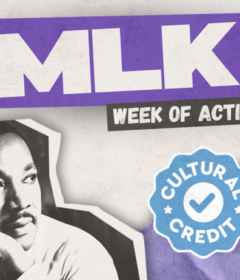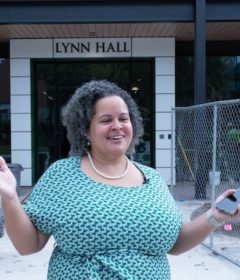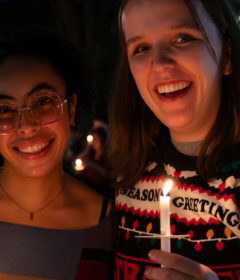2025 Ending Poverty and Homelessness Conference Explored Human Trafficking
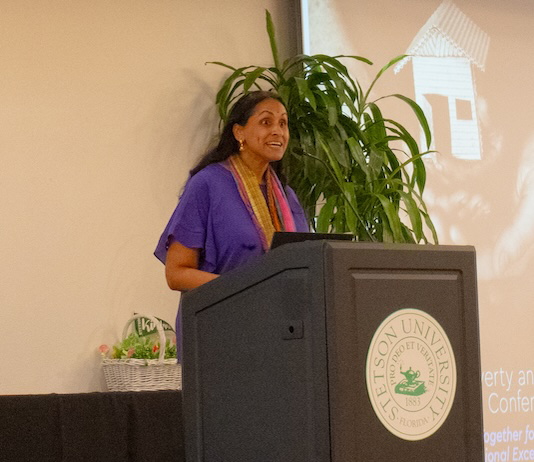
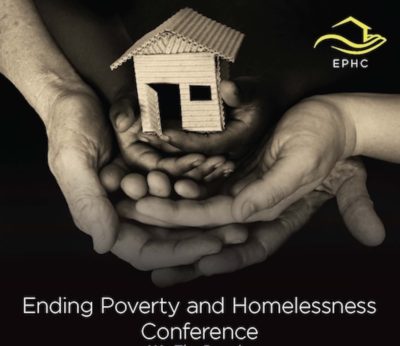
Homelessness isn’t just a housing issue — it’s a human rights crisis and a gateway to human trafficking, said Tomas Lares, founder of United Abolitionists and the keynote speaker at the 11th Annual Ending Poverty and Homelessness Conference, held May 23 on Stetson’s DeLand campus.
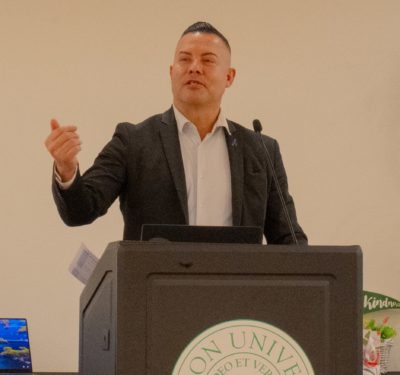
“Florida has the third highest volume of human trafficking calls, behind California and Texas,” Lares told the large gathering in the Warren and Barbara Carr Stetson Room. “It may surprise you to learn that one in three homeless youths is approached by traffickers within 24 hours. Homelessness is defined as ‘a lack of stable, safe housing,’ and runaway youth often arrive at that state due to system neglect or foster-care failures.”
Traffickers also find their victims through digital gateways, such as social media apps and websites. Lares added that boys are frequently targeted through gaming systems.
Lares, a longtime supporter of the conference, has been a tireless advocate against human trafficking, exploitation and abuse. He has more than 34 years of human services experience at the local, state and national levels. Lares was honored by then-Florida Attorney General Ashley Moody in 2020 as the Community Advocate of the Year during the Attorney General’s Annual Summit on Human Trafficking. In 2022, after Lares was appointed by the Florida Statewide Human Trafficking Council’s Services & Resource Committee to co-chair the Housing Standards Working Group, Florida became the first state to mandate safe home standards and certification for adult survivors of human trafficking.
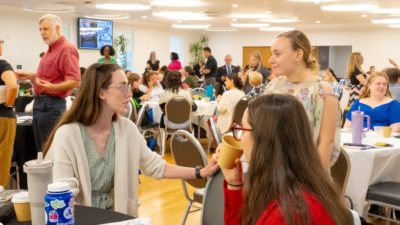
Root Causes of Homelessness
The National Coalition for the Homeless reports that family and child homelessness has doubled in the past decade. A recent study from the National Center for Homeless Education shows the number of homeless children nationwide is at its highest level in more than 10 years.
Homeless people are exploited in construction, agriculture, begging rings and domestic servitude. Why don’t they leave such circumstances? Lares explained there are several barriers to escape: force (physical assault, sexual assault, confinement); fraud (false promises about work/living conditions, withholding promised wages); coercion (threats of harm or deportation, debt bondage, psychological manipulation, confiscation of I.D. and passport documents, forced drug dependency).
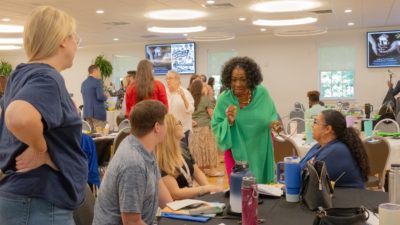
Ending human trafficking means addressing its root causes, not just the symptoms, Lares noted. He suggested creating trauma-informed shelter care, along with street outreach that builds trust. Also, he would like to see laws that protect, not criminalize, trafficking survivors.
“Local organizations are mostly volunteer-staffed and funded,” he added. “Your hands, hearts and gifts keep them running. That’s why we must support ‘housing first’ models and advocate for stronger anti-trafficking laws.”
In addition, Lares shared a critical resource — the victim-centered, confidential Stop Human Trafficking Hope Line: 1-888-88-HOPE-1.
Lares’ passionate and informative presentation was among the highlights of the all-day conference, which attracted wide-ranging attendees from education and the community. They also included students from DeLand High School’s I.B. Program and the DeLand Preparatory Academy.
‘Spirit of Collective Love and Action’
“This conference offered meaningful dialogue, resource exchange, community organizing, strategic planning and partnership building — united in the spirit of collective love and action,” commented Rajni Shankar-Brown, PhD, who largely organizes the conference each year. Shankar-Brown is a professor and the Jessie Ball duPont Distinguished Chair of Social Justice Education at Stetson. Further, she is past-president and Education and Racial Equity chair of the National Coalition of the Homeless, as well as founder and executive director of Stetson’s Institute for Catalyzing Equity, Justice and Social Change.
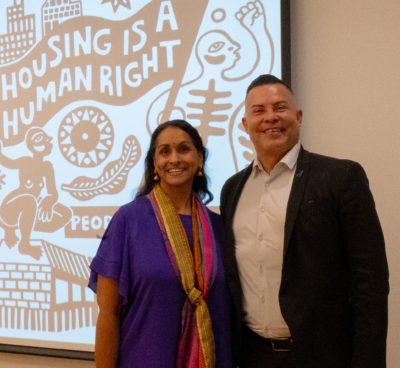
According to Shankar-Brown, the theme of the conference, “New Horizons: Rising Together for Housing Justice and Educational Excellence,” was designed to “envision a world where equity, justice and sustainability are not just ideals, but realities we co-create through our collective vision, mission and shared strength.”
The conference continues to be a collaborative effort among Stetson, the National Organization for Women, the National Coalition for the Homeless, the Center for Sustainable Communities, the Florida Education Association, Volusia United Educators and Volusia County Schools.
“This work is vital,” Shankar-Brown explained. “Everyone deserves a safe place to sleep and access to nutritious food. Housing justice and food security are essential for the pursuit of life, liberty and the pursuit of happiness. Housing and food are basic human rights, and we must support each other in our collective efforts to overcome challenges while also fostering joy.”

